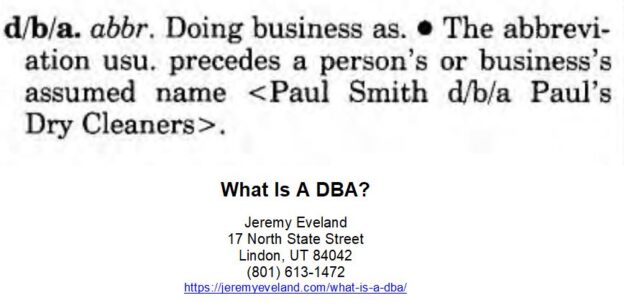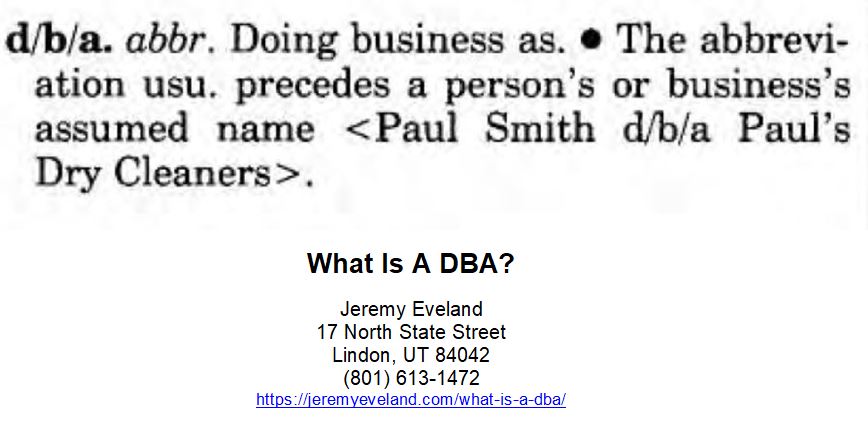Are you feeling overwhelmed by the complexities of tax return preparation? Look no further! Our dedicated team of tax attorneys is here to guide you every step of the way. With years of experience assisting businesses and high net worth individuals, we understand the unique challenges you face. Our blog is filled with informative articles that break down complex legal concepts into clear and accessible language. Through engaging case studies and real-life scenarios, we showcase our expertise and exemplify how we have successfully helped clients in similar situations. We address common concerns, provide reassurance, and offer guidance, ensuring you can make informed decisions. So don’t hesitate, take the next step and give us a call to schedule a consultation with our highly skilled tax attorneys. Let us help you streamline the tax return preparation process and alleviate your burdens.
Tax Return Preparation
Tax return preparation is an important aspect of financial management for individuals and businesses alike. It involves the gathering, organizing, and reporting of financial information to determine the amount of tax owed to the government. While it may seem daunting, understanding the importance of tax return preparation and hiring a professional can help ensure accurate and efficient filing.

Understanding the Importance of Tax Return Preparation
Tax return preparation is crucial for several reasons. Firstly, it ensures compliance with the law. Filing your taxes accurately and on time is a legal obligation, and failure to do so can result in penalties and potential audits by the tax authorities. By staying up to date with your tax obligations, you can avoid unnecessary legal trouble.
Additionally, tax return preparation allows you to take advantage of deductions and credits that can help reduce your overall tax liability. By carefully assessing your financial situation and considering eligible deductions and credits, you can maximize your tax savings and keep more of your hard-earned money.
Why Hiring a Professional for Tax Return Preparation is Essential
While some individuals may choose to file their tax returns on their own, hiring a professional for tax return preparation offers several benefits. First and foremost, tax professionals have the expertise and knowledge necessary to navigate complex tax laws and regulations. They stay up to date with changes in the tax code and can help you accurately report your financial information.
Furthermore, tax professionals can help you maximize deductions and minimize your tax liability. They are familiar with the various deductions and credits available and can identify opportunities that you may have overlooked. By leveraging their knowledge, you can potentially save a significant amount of money.
In addition, hiring a professional can provide you with peace of mind. Tax professionals will ensure that your tax returns are accurate and that you are in compliance with the law. This can alleviate the stress and worry associated with filing taxes and allow you to focus on other important aspects of your life or business.
Common Mistakes to Avoid During Tax Return Preparation
When preparing your tax return, it is important to avoid common mistakes that can lead to inaccuracies or delays. One of the most significant mistakes is failing to report all income. Whether it’s income from a full-time job, freelance work, or investments, all sources of income must be reported to the tax authorities. Failure to do so can result in penalties and potential audits.
Another common mistake is incorrectly entering personal information. Simple errors such as misspelling your name, providing an incorrect Social Security number, or entering an incorrect address can cause significant delays in the processing of your tax return. It is crucial to double-check all personal information before submitting your return.
Furthermore, many individuals forget to sign their tax returns. The signature serves as confirmation that the information provided is accurate to the best of your knowledge. Forgetting to sign your return can result in the IRS considering it incomplete, leading to delays and potential penalties.
It is also important to double-check your tax return for errors and omissions. Check that all numbers are accurate and that you have not overlooked any deductions or credits to which you are entitled. Taking the time to review your return before submitting it can help avoid unnecessary issues.
Finally, be diligent in identifying eligible deductions and credits. Many individuals overlook or are unaware of certain deductions and credits that can significantly reduce their tax liability. Consult with a tax professional to ensure you are taking advantage of all available opportunities.
Important Documents and Information Needed for Tax Return Preparation
To successfully prepare your tax return, you will need to gather various documents and information. These include:
- W-2 forms and income statements: These documents provide details of your wages, salaries, and tips earned throughout the year. They are typically provided by your employer(s).
- 1099 forms for freelance or contract work: If you engage in freelance or contract work, you may receive 1099 forms from clients. These forms report the income you earned through these activities.
- Receipts for business expenses: If you own a business, it is important to keep track of all business-related expenses. These receipts will be needed to accurately report your expenses and potentially claim deductions.
- Mortgage interest statements: If you own a home and have a mortgage, you will receive statements detailing the amount of interest you paid on your mortgage throughout the year. This information can be used to claim deductions.
- Charitable donation receipts: If you made donations to charitable organizations, be sure to collect and keep the receipts. These can be used to claim deductions on your tax return.
- Proof of medical expenses: If you incurred significant medical expenses, it is important to gather documentation to support these expenses. This includes receipts, statements from healthcare providers, and insurance records.
- Records of capital gains and losses: If you engaged in investment activities, you will need documentation of any capital gains or losses. This includes records of stock transactions, property sales, or other investment activities.
Organizing and keeping track of these documents throughout the year can help streamline the tax return preparation process and ensure accurate reporting.

Types of Tax Returns and Their Requirements
Depending on your financial situation and the nature of your income, you may need to file different types of tax returns. The most common types of tax returns include:
- Individual tax returns (Form 1040): This is the standard tax return for individuals. It is used to report wages, salaries, tips, and other types of income.
- Business tax returns (Form 1120, 1120S, 1065): If you own a business, you will need to file a business tax return. The specific form you need to file depends on the legal structure of your business.
- Trust and estate tax returns (Form 1041): If you are a trustee or executor of a trust or estate, you may be required to file a tax return on behalf of the trust or estate.
- Non-profit organization tax returns (Form 990): If you are involved in running a non-profit organization, you will need to file a tax return specific to non-profits.
Understanding the specific requirements and deadlines associated with each type of tax return is crucial to ensure compliance with the law.
Determining the Correct Filing Status for Tax Return Preparation
Your filing status plays a significant role in determining your tax obligations. The five most common filing statuses are:
- Single: This status applies to individuals who are not married, divorced, legally separated, or widowed.
- Married filing jointly: This status applies to married couples who choose to file their tax return together. It often provides tax advantages compared to filing separately.
- Married filing separately: This status applies to married individuals who choose to file separate tax returns. It may be necessary in certain situations, but it can result in higher taxes for some couples.
- Head of household: This status applies to unmarried individuals who financially support dependents, such as children or parents. It provides certain tax benefits.
- Qualifying widow(er) with dependent child: This status applies to individuals who have lost their spouse and have a dependent child. It allows them to file as a married individual for two years after the spouse’s death.
Determining the correct filing status is important because it affects your tax rates, deductions, and credits. Consult with a tax professional if you are unsure which filing status applies to you.
Tax Deductions and Credits to Consider During Tax Return Preparation
Tax deductions and credits can significantly reduce your overall tax liability. When preparing your tax return, it is important to consider the following:
- Standard deductions vs. itemized deductions: The IRS allows taxpayers to choose between taking the standard deduction or itemizing their deductions. The standard deduction is a fixed amount that reduces your taxable income, while itemized deductions include specific expenses such as mortgage interest, state and local taxes, and charitable donations.
- Common tax deductions for individuals: Some common deductions for individuals include mortgage interest, property taxes, state and local taxes, medical expenses, and charitable contributions.
- Tax credits for individuals and businesses: Tax credits directly reduce your tax liability, and some common credits include the Child Tax Credit, Earned Income Credit, and Lifetime Learning Credit.
Keeping track of eligible deductions and credits throughout the year and consulting with a tax professional can help you maximize your tax savings.
The Role of Tax Software in Tax Return Preparation
Tax software has become increasingly popular for tax return preparation due to its convenience and accuracy. When considering tax software, there are several benefits to keep in mind:
- Efficiency: Tax software automates many aspects of tax return preparation, making the process quicker and more streamlined. It can perform calculations, populate forms with your information, and help identify potential errors or omissions.
- Accuracy: By reducing the need for manual calculations and minimizing human error, tax software can help ensure the accuracy of your tax return. The software is designed to flag potential issues and provide guidance for correcting them.
- Accessibility: With tax software, you can easily access your tax return from any device with an internet connection. This allows you to work on your return at your convenience and avoid the hassle of paper documents.
- Guidance: Many tax software programs provide helpful guidance throughout the tax return preparation process. They offer explanations of various tax concepts, provide tips for maximizing deductions, and can even assist in finding potential credits.
When choosing tax software, consider factors such as ease of use, customer support options, and compatibility with your specific tax situation.

The Benefits of Outsourcing Tax Return Preparation
For individuals and businesses with complex financial situations, outsourcing tax return preparation can offer significant benefits. Some advantages of outsourcing include:
- Time savings: Outsourcing your tax return preparation frees up valuable time that can be better spent on other aspects of your life or business. Tax professionals have the knowledge and experience to efficiently handle the process, reducing the burden on you.
- Expertise and knowledge: Tax professionals are well-versed in tax laws and regulations. They stay up to date with changes and intricacies of the tax code, ensuring accurate reporting and compliance.
- Risk reduction: By outsourcing tax return preparation to a professional, you reduce the risk of errors and potential audits. Professionals are trained to identify potential issues and take the necessary steps to avoid penalties and legal consequences.
- Strategic tax planning: Tax professionals can provide invaluable advice on tax planning strategies to help you minimize your tax liability in the future. By working with a professional consistently, you can ensure that you are utilizing all available opportunities to save money on taxes.
Outsourcing your tax return preparation to a trusted tax professional can provide peace of mind and help optimize your financial situation.
Tips for a Smooth Tax Return Preparation Process
To ensure a smooth tax return preparation process, consider the following tips:
- Organize and gather all necessary documents: Start by collecting all relevant documents, such as income statements, receipts, and investment records. Keeping these documents organized throughout the year can save time and frustration when it comes time to file your tax return.
- Start early to avoid last-minute stress: Procrastinating on your tax return can lead to mistakes and unnecessary stress. Start the process early to allow ample time for gathering information, reviewing your return, and addressing any potential issues.
- Keep track of important filing deadlines: Missing tax filing deadlines can result in penalties and interest charges. Familiarize yourself with the specific filing deadlines for your situation and set reminders to ensure timely submission of your tax return.
- Consider quarterly estimated tax payments: If you are self-employed or have income sources that do not withhold taxes, you may need to make quarterly estimated tax payments. Consult with a tax professional to determine if this applies to you and to ensure accurate and timely payments.
- Consult with a tax professional for guidance: If you have complex financial situations, significant investments, or own a business, it is advisable to consult with a tax professional. They can provide guidance tailored to your specific circumstances, ensuring accurate and efficient tax return preparation.
By following these tips, you can simplify the tax return preparation process and reduce the likelihood of errors or problems.
FAQs
-
Do I need to hire a tax professional for my tax return preparation? While it is not mandatory to hire a tax professional, doing so can provide numerous benefits. A tax professional has the expertise and knowledge to guide you through the process, maximize deductions, and minimize your tax liability. They can also help ensure accurate reporting and reduce the risk of penalties or audits.
-
What happens if I make a mistake on my tax return? If you make a mistake on your tax return, it is important to correct it as soon as possible. Depending on the nature and severity of the mistake, you may need to amend your tax return or file a separate form to provide additional information. Consulting with a tax professional can help guide you through the process and ensure proper correction.
-
What deductions or credits am I eligible for as a business owner? As a business owner, you may be eligible for various deductions and credits, depending on your business activities and expenses. Common deductions for businesses include expenses related to operations, employee wages, rent or mortgage interest, and business-related travel. Additionally, there are credits available for certain business activities, such as research and development or energy-efficient investments. Consulting with a tax professional who specializes in business taxation can help identify all eligible deductions and credits.
-
Can tax software replace the need for a tax professional? While tax software can be a helpful tool, it does not replace the expertise and personalized advice of a tax professional. Tax software can assist with calculations and provide general guidance, but it may not identify all potential deductions or credits specific to your situation. A tax professional can provide valuable insights and tailor their advice to your unique circumstances.
-
What should I do if I receive a notice or audit from the IRS? If you receive a notice or audit from the IRS, it is crucial to address it promptly and properly. Ignoring or mishandling the situation can lead to serious consequences. Contact a tax professional immediately to guide you through the process, respond to the IRS, and help resolve any issues or disputes.
Remember, tax return preparation is a critical aspect of your financial management. By understanding its importance, avoiding common mistakes, and considering the benefits of hiring a professional, you can navigate the process with confidence and ensure accurate and efficient filings.















